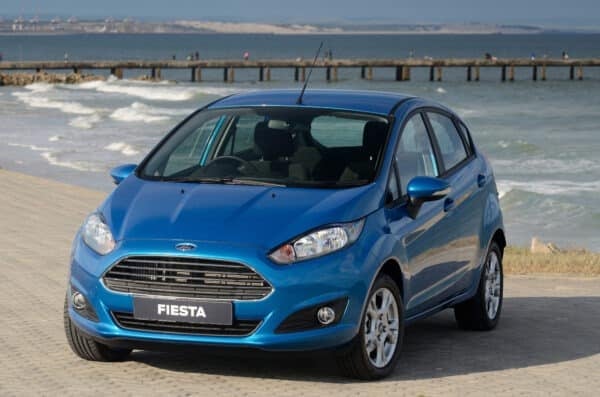50 Actionable Road Safety Tips To Create Safer Roads For Everyone, Everyday!
Road Safety is not only an issue during the holidays or the festive season, it is something everyone should be aware of everyday of the year. So we created a comprehensive checklist on Road Safety Tips you can implement everyday, wherever you might be off to.
Whether you are just going to stay close to home, go off to some exotic holiday destination or just being on the road for work related stuff. One thing is for certain, you will most likely be on the road to get where you want to go.
Road traffic in some destinations can become a nightmare, potentially dangerous, a whole new kind of adventure or just outright scary for some when they are not ready for the busy roads. So its best to be ready and prepared when you hit the long road to whatever destination you may visit through the year.
Road safety should always be considered as very important when travelling on long and busy roads. That is why we created an easy to read informational road trip safety checklist for every trip you take in order to create awareness so everyone can arrive alive!

Always plan your trip before hitting the road
#1. Whether you are taking a long distance road trip or just somewhere around the corner, its important to always obey the road safety rules while driving and never drive without your drivers licence.
#2. Start out by planning your route to your destination and make sure to give yourself enough time to reach your destination. This will ensure that you stay on top of everything and are not too pressed for time.
#3. Try to use a GPS to easily guide you to where you need to go, especially if you are not familiar with the place you will be visiting.

#4. With all the planning kept in mind, you should consider travelling on major routes as much as you can to avoid getting totally lost, put yourself in danger or in any case of breakdown or accidents.
#5. It is also crucial to plan for fuel and rest points along your route. This is helpful when traveling with kids so you can get out to stretch some legs and not get stranded with an empty tank in the middle of nowhere.
#6. Driving in the dark is not something to consider unless its really necessary, because it is far more dangerous than driving at daytime. For the best road safety, try to avoid driving in the dark and plan your schedule accordingly so you get to your destination safe and sound.
#7. Always tell a family member or friend that is not travelling with you where and when you travel over long distances so they can be aware that you are on the road and let them know when you have safely reached your destination.
Is Your Vehicle roadworthy for the journey you are about to take?
#8. The importance of road safety does not only depends on your abilities to plan the perfect trip, but also the roadworthiness of your vehicle. You should take your vehicle for a full check before going on holiday to prevent any breakdowns, dangerous situations you couldve avoided and anything that can go wrong with the car itself. So make sure your vehicle is roadworthy and ready to take on the long distances.
#9. Check all the lights and indicators on the vehicle to make sure everything works, are bright enough and are positioned correctly to not bright oncoming traffic when driving. Here are a few tips for checking your lights Checking headlamps and lights.

#10. Make sure your windscreen wipers are in good working condition, you never know when and where its going to rain. So better be safe, fix them and even take a spare for just in case.
#11. Brakes are one of the important things to fix or repair before going on the long road. Just make sure the brake pads are still efficient and they have enough brake fluid.
#12. Go to your nearest wheel alignment specialist to get the wheels balanced and aligned. This will help with steering and will also help keep the tyres from losing tread quicker than normal.
#13. Normally the exhaust can be commonly overlooked when preparing your car for the road, but be sure to have a look. An exhaust leak could lead to lower fuel efficiency and unnecessary noise.
#14. Stay connected to the road with a set of new tyres. Get your tyres fitted at your nearest tyre specialists. Here are a few things to look for Checking your tyre treads.

#15. Its important to never overload your vehicle, so stay within the weight limits depending on the vehicle you drive and also be careful when driving with a trailer.
Now that you have planned your journey and did all the necessary checks to make sure your vehicle is roadworthy, its time to talk about road safety tips for drivers.
12 Driver Fitness & Energy Tips To Stay Awake During long roads
Most people know that driving under the influence of alcohol or any other drugs are strictly against the law, but few realize the dangers of driving when feeling drowsy. Thousands of accidents happens every year due to drivers falling asleep behind the wheel. Here are 12 tips on how to prevent it from happening:
#16. Make sure you get a good time to rest before you embark on your journey to be full of energy and be focused in order to drive long distances.
#17. The best way to stay awake and sharp is to take safety breaks every 2 hours or 200 km, so make sure to get out the car and stretch your legs, whether it is when you refuel or just stopping somewhere to take a break. Its always good to feel refreshed.

#18. Food & drinks will also help to give you the needed energy to stay awake and focused. Try to stay away from too much sugar based food though.
#19. When everyone falls asleep around you and you need to keep your mind fresh you can turn on the radio, but not too loud.
#20. Check the temperature settings in the car and configure it until you are comfortable enough to drive long distances.
#21. When the road is getting really long, make sure to enjoy fun in-car activities with the people you drive with. You should just ensure you dont get too distracted. This is a great way to keep the family occupied.
#22. Never ever drink and drive, its important in case of both short or long travelling distances. If you are planning to take a drink or two make sure to make an alternative arrangement so someone who is sober can take the wheel.

#23. It is very important to stay focused when driving long distances and not getting distracted by any unnecessary things. These could include phones, texting, too loud music and people driving with you especially children.
#24. Wear your seatbelt at all times, make a standard rule and make sure every individual in the car is strapped in. Seatbelts can save a life.
#25. South African law requires each passenger being transported in a motor vehicle to make use of the seatbelts and strap themselves in. It is the drivers responsibility to make sure all passengers are strapped in mains strapped in while travelling. It is a criminal offence for an adult to allow a child younger than 14 years to travel unrestrained in a vehicle equipped with seatbelts or a car safety seat.

#26. Infants and children under the age of 12 should travel in the back seat of a vehicle and should be buckled up, either in a car seat, booster seat or using the cars seatbelt, depending on the age and weight of the child.
#27. Infants between 0 months and one year of age, or up to 10kg in weight, should travel in a rear facing car seat in the back of a car. In the event of an accident, the impact will be on the seat and not on the infant.
How To Always Be The Defensive Driver & Avoid Danger
Drive defensively! Risk takers are collision makers!
#28. Try to avoid all distractions that could make you lose concentration, keep both your eyes on the road and hands on the steering wheel. Drive with your lights on so you can be visible to motorists that are also on the road.
#29. When driving at night, you should dip your headlights well before an approaching vehicle is within range of the main beam. Be respectful to everyone on the road and they will most likely be too.
#30. Speed kills! Always stay within the speed limit, whether you are alone or driving with a vehicle full of people. Road safety tips for speed should always be taken seriously, because there are many people with you on the road.

#31. When you are approaching traffic lights, intersections or level crossings, be aware of fellow road users and take special care to stay out of trouble.
#32. There are always slower cars and faster cars on the road, so focus on whether to overtake another car and when you are overtaken. Always be sure it is safe to pass a car and avoid driving in the blind spot of other vehicles.
#33. If you are behind another car, try to maintain at least a 3 second following distance. When you are driving at night, in foggy or rainy conditions or when the road is wet, the 3 second distance should be even longer, something like 5 seconds to be safe.
#34. Always respect your fellow road users, keep your temper and resist the temptation do something you may possibly regret.
#35. If you are driving alone, try to avoid stopping in remote areas and it is important to let a friend or family member know where you are and if you have safely arrived at you destination.
6 Road Safety Tips To Keep All Road Users In Mind
You may think the road is mainly for vehicles, but you are wrong. The roads are used by pedestrians, motorcycles and cyclists. It is best practice to keep everyone in mind when traveling, in whatever way you are using the road.
#36. A driver should be aware of their surrounds to watch out for potentially dangerous drivers on the road and pedestrians alongside. You must also keep well clear of pedestrians and keep your children away from the roads, it is not a place to play.

#37. Road safety tips for pedestrians can help when you are walking near traffic, be aware of what is going on around you, avoid distractions and be visible so motorists can always see you.
#38. Motorists must also be aware of animals on the open road specifically near more rural areas where animals are more likely to be near the roads.
#39. Bikers can sometimes be a safety hazard so if you are a biker and on tour, you should drive with your lights on and wear Protective Clothing at all times. Do not stay in the blind spot or No Spot Zone of a truck or any vehicle when overtaking. Bikers should be extra cautious, paying attention to the signals and brake lights of other vehicles, especially trucks.

#41. During the holidays there can also be a lot of cycling activities going on, so if you are cycling remember that the more people cycling together the better. It is usually better to not go on the road alone and rather find a partner to cycle with you. This will be very important especially in the event of an emergency.
#42. You should always let some friends or family know when you will be cycling, the road you will be cycling on and when you can be expected to return. Itss important to carry a fully charged cellular phone with you to be prepared to call assistance in the event of an emergency.
The law also requires cyclists to cycle in single file and to always wear a safety helmet.
5 Ways To Safely Drive In Difficult Road Conditions
#43. A driver should try to adjust their driving style to the driving conditions and environment, the quicker the better. When its raining, you should turn youre on your vehicles headlights and windscreen wipers. Reduce your speed and try not to brake suddenly to avoid slipping or sliding all over the road. When it is raining, the damp conditions can often make the road real slippery due to oil and petrol on the road, which can cause you to lose control of the car.

#44. When you are driving in foggy conditions it is basically the same as rain, reduce speed, turn headlights on low, or use fog lamps. The only major difference could be the visibility factor. Its best to use the road markings or the verge of the road as a guide and be very alert for sudden looming obstacles. Keep in mind that if you cannot see or operate the vehicle safely in the current conditions, you should not be driving!
#45. Driving in difficult conditions can be struggle on its own, but dont forget to take the traffic around you into account. Traffic can get bunched up real quick under bad conditions, so be extra careful and keep your eyes on the road at all times.
#46. Travelling with small children can be a challenge. Small children can get bored and be a handful on long trips so make sure you have a variety of their favourite snacks and toys such as portable DVD players, colouring books and crayons.
#47. If one of you are suffering from motion sickness and complains of dizziness or nausea, this can be helped by getting out of the car for a bit of fresh air. Alternatively, there are over the counter drugs available for treating motion sickness, which need to be taken before.
What To Do For Emergency Stops & Accidents
#48. You should try to avoid stopping on any highways, rather take the next of ramp to stop in a more public area where you can stretch, refresh yourself and/or take a break from driving. It is important to keep roadside assistance numbers and other emergencies close at hand or saved on your cell phone, so that you are well-prepared for any eventuality.
#49. Before you leave for the holiday, make sure that you have all the essential roadside equipment with you as many breakdowns are caused by relatively minor problems. Items include a fist aid kit, tow rope, warning triangles, torch and fire extinguisher.

#50. In the event of an accident, determine the extent of the damage or injuries and assess whether or not medical attention is required. When you have been involved in any accident, take a picture with your camera or mobile phone and file an accident report with the police as you will need a case number for your insurance company to file a claim. Remember to get names, addresses, telephone numbers and ID numbers of everyone involved in the accident.
Now everyone can have a wonderful trip by being safe on the road with all these road safety tips.
Do you know anyone who is traveling Often?
Share This:






Emergency Numbers:
Police: 10111
Ambulance: 10177
Emergency: 112
ER24: 084 124
NetCare: 082 911
For More Information About Buying Used Cars – Visit WP Motors
Resources used for this post:
- https://www.arrivealive.co.za
- https://www.arrivealive.co.za/Road-Safety-Tips
- https://www.arrivealive.co.za/Driver-Fatigue
- http://roadsafety.co.za/
- https://www.aa.co.za/about/press-room/press-releases/the-essential-road-safety-rules-to-remember.html
- https://safelyhome.westerncape.gov.za/road-safety
- http://www.south-africa-tours-and-travel.com/driving-in-south-africa-1.html
- https://www.goodyear.eu/en_za/consumer/learn/checking-your-tire-treads.html









